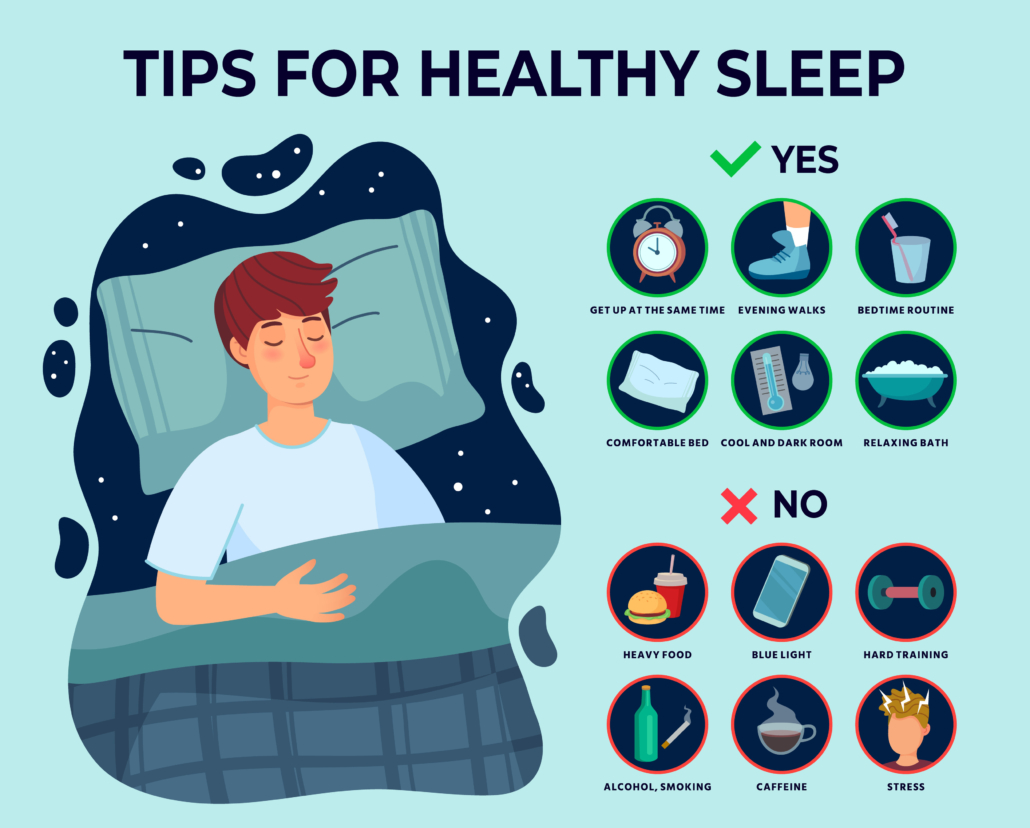
Having trouble getting a good night’s sleep? You’re not alone. Many people struggle with falling asleep, staying asleep, or waking up feeling refreshed. If you’re looking for solutions to improve the quality of your rest, here are 14 tips to help you master sleep:
1. Create a Bedtime Routine
Establishing a consistent bedtime routine can signal to your body that it’s time to wind down and prepare for sleep. Try to go to bed and wake up at the same time every day, even on weekends.
2. Limit Screen Time Before Bed
The blue light emitted by phones, tablets, and computers can interfere with your body’s production of the sleep hormone melatonin. Try to avoid screens at least an hour before bedtime.
3. Make Your Bedroom a Sleep Sanctuary
Keep your bedroom dark, quiet, and cool to create an optimal sleep environment. Invest in blackout curtains, earplugs, or a white noise machine if necessary.
4. Invest in a Comfortable Mattress and Pillows
A supportive mattress and pillows can make a world of difference in your sleep quality. If your mattress is old or uncomfortable, consider upgrading to a new one.
5. Practice Relaxation Techniques
Taking time to relax and unwind before bed can help calm your mind and body. Try deep breathing, meditation, yoga, or progressive muscle relaxation to reduce stress and promote sleep.
6. Exercise Regularly
Physical activity can improve the quality of your sleep, but try to avoid intense exercise close to bedtime. Aim for at least 30 minutes of moderate exercise most days of the week.
7. Watch Your Diet
Avoid heavy meals, caffeine, and alcohol close to bedtime, as these can disrupt your sleep. Instead, opt for a light snack or soothing herbal tea to promote relaxation.
8. Establish a Pre-Sleep Wind Down Period
Giving yourself time to wind down before bed can help signal to your body that it’s time to sleep. Try reading a book, taking a warm bath, or listening to soothing music.
9. Keep a Sleep Diary
Recording your sleep patterns and habits can help you identify trends and make adjustments to improve your sleep quality. Note how long you sleep, how many times you wake up, and how you feel upon waking.
10. Manage Stress and Anxiety
Stress and anxiety can interfere with your ability to fall asleep and stay asleep. Practice stress management techniques such as mindfulness, journaling, or talking to a therapist.
11. Limit Naps
If you’re having trouble sleeping at night, try to limit daytime naps to 20-30 minutes. Longer naps can disrupt your nighttime sleep schedule.
12. Avoid Clock-Watching
Watching the clock can create stress and anxiety about not being able to fall asleep. Turn your clock away from you or cover it up to avoid obsessing over the time.
13. Get Natural Light During the Day
Exposure to natural light during the day can help regulate your sleep-wake cycle. Try to spend time outside or near a window in the morning to signal to your body that it’s time to wake up.
14. Consult a Sleep Specialist
If you’ve tried these tips and still struggle with sleep, consider consulting a sleep specialist. They can help identify underlying sleep disorders and recommend personalized treatment options.
By incorporating these tips into your daily routine, you can improve the quality of your sleep and enjoy the many benefits of a restful night’s rest. Sweet dreams!











Find Us on Socials